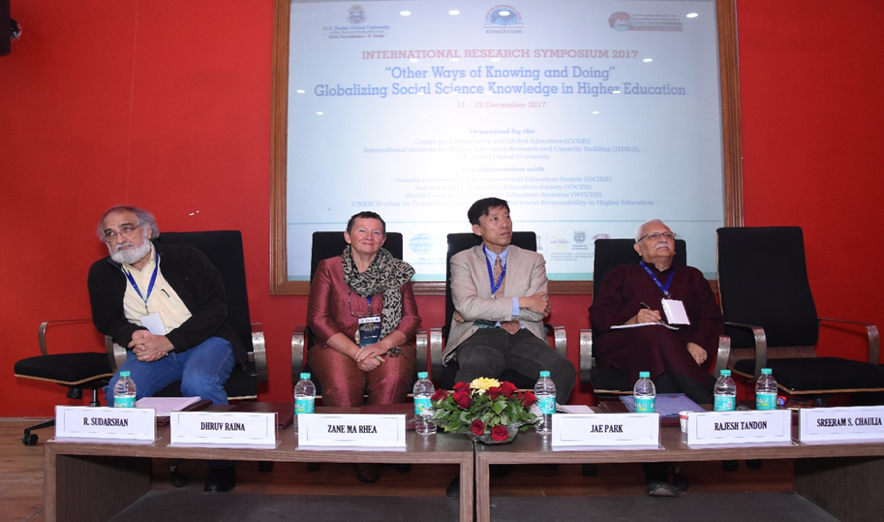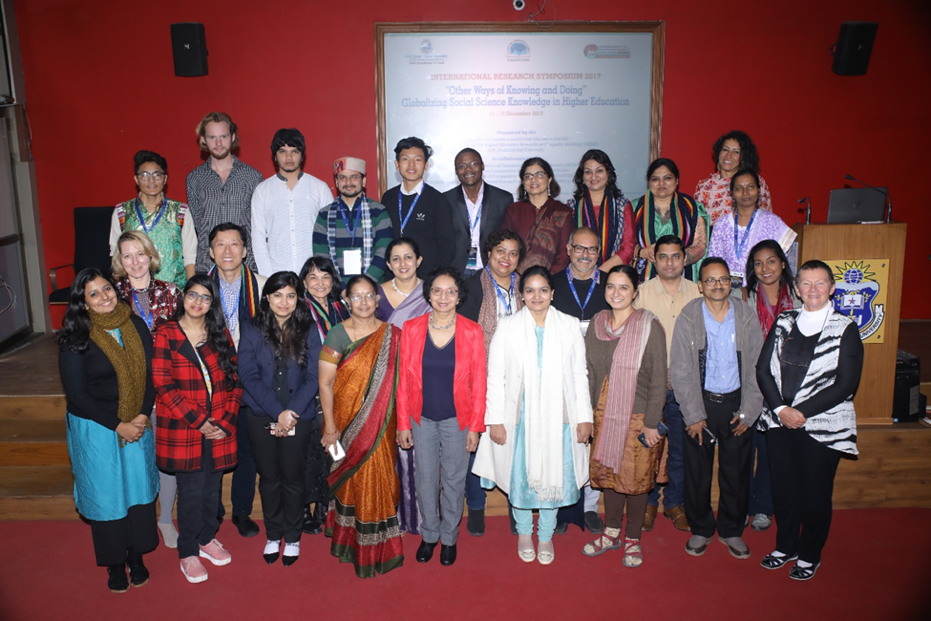- Home
- About WVN
-
WVN Issues
- Vol. 1 No. 1 (Oct. 2017) >
- Vol. 2 No. 1 (Feb. 2018) >
- Vol. 2 No. 2 (Jun. 2018) >
- Vol. 2 No. 3 (Oct. 2018) >
- Vol. 3 No. 1 (Feb. 2019) >
- Vol. 3 No. 2 (Jun. 2019) >
- Vol. 3 No. 3 (Oct. 2019) >
- Vol. 4 No. 1 (Feb. 2020) >
- Vol. 4 No. 2 (Jun. 2020) >
- Vol. 4 No. 3 (Oct. 2020) >
- Vol. 5 No. 1 (Feb. 2021) >
- Vol. 5 No. 2 (Jun. 2021) >
- Vol. 5 No. 3 (Oct. 2021) >
- Vol. 6 No. 1 (Feb. 2022) >
- Vol. 6 No. 2 (Jun. 2022) >
- Vol. 6 No. 3 (Oct. 2022) >
- Vol. 7 No. 1 (Feb. 2023) >
- Vol. 7 No. 2 (Jun. 2023) >
- Vol. 7 No. 3 (Oct. 2023) >
- Vol. 8 No. 1 (Feb. 2024) >
-
Events
- CIES 2023, Feb. 14-22, Washington D.C., USA
- ICES 4th National Conference, Tel Aviv University, Israel, 20 June 2021
- 2022 Virtual Conference of CESHK, 18-19 March 2022
- ISCEST Nigeria 7th Annual International Conference, 30 Nov.-3 Dec. 2020
- 3rd WCCES Symposium (Virtually through Zoom) 25-27 Nov. 2020
- CESA 12th Biennial Conference, Kathmandu, Nepal, 26-28 Sept. 2020
- CESI 10th International Conference, New Delhi, India, 9-11 Dec. 2019
- SOMEC Forum, Mexico City, 13 Nov. 2018
- WCCES Symposium, Geneva, 14-15 Jan. 2019
- 54th EC Meeting, Geneva, Switzerland, 14 Jan. 2019
- XVII World Congress of Comparative Education Societies, Cancún, Mexico, 20-24 May 2019
- ISCEST Nigeria 5th Annual Conference, 3-6 Dec. 2018
- CESI 9th International Conference, Vadodara, India, 14-16 Dec. 2018
- ICES 3rd National Conference, Ben-Gurion University, Israel, 17 Jan. 2019
- WCCES Retreat & EC Meeting, Johannesburg, 20-21 June 2018
- WCCES Symposium, Johannesburg, 21-22 June 2018
- 5th IOCES International Conference, 21-22 June 2018
- International Research Symposium, Sonepat, India, 11-12 Dec. 2017
- WCCES Info Session & Launch of Online Course on Practicing Nonviolence at CIES, 29 March 2018
- WCCES Leadership Meeting at CIES, 28 March 2018
- 52nd EC Meeting of WCCES, France, 10-11 Oct. 2017
- UIA Round Table Asia Pacific, Chiang Mai, Thailand, 21-22 Sept. 2017
- Online Courses
International Research Symposium, Sonepat, India, 11-12 Dec. 2017
“Other Ways of Knowing and Doing”: Globalizing Social Science Knowledge in Higher Education
The Centre for Comparative and Global Education (CCGE) at the International Institute of Higher Education (IIHEd), O. P. Jindal Global University (JGU), India hosted an International Research Symposium on the theme- “Other Ways of Knowing and Doing: Globalizing Social Science Knowledge in Higher Education” (Dec 11-12, 2017). The two-day international research symposium was organized in collaboration with the UNESCO-Chair in Community-based Research and Social Responsibility in Higher Education, Oceania Comparative and International Education Society (OCIES), Indian Ocean Comparative Education Society (IOCES) and the World Council of Comparative Education Societies (WCCES). It was convened by Dr. Mousumi Mukherjee, Congress Standing Committee Member of WCCES, who is the Assistant Director of IIHEd and founding executive director of CCGE, O.P. Jindal Global University, India. She was supported in the organization by a team of her students, senior research fellow of IIHEd, Ms. Nandita Koshal and, some faculty and admin staff of the University.
The Centre for Comparative and Global Education (CCGE) at the International Institute of Higher Education (IIHEd), O. P. Jindal Global University (JGU), India hosted an International Research Symposium on the theme- “Other Ways of Knowing and Doing: Globalizing Social Science Knowledge in Higher Education” (Dec 11-12, 2017). The two-day international research symposium was organized in collaboration with the UNESCO-Chair in Community-based Research and Social Responsibility in Higher Education, Oceania Comparative and International Education Society (OCIES), Indian Ocean Comparative Education Society (IOCES) and the World Council of Comparative Education Societies (WCCES). It was convened by Dr. Mousumi Mukherjee, Congress Standing Committee Member of WCCES, who is the Assistant Director of IIHEd and founding executive director of CCGE, O.P. Jindal Global University, India. She was supported in the organization by a team of her students, senior research fellow of IIHEd, Ms. Nandita Koshal and, some faculty and admin staff of the University.
The international research symposium was inaugurated by founding Vice-Chancellor of O.P. Jindal Global University and Director of IIHEd, Prof. (Dr.) Raj Kumar and Prof. (Dr.) Y.S.R. Murthy, Registrar and Senior Fellow of IIHEd. It included several plenaries with speakers from around the world (including Prof. Ratna Ghosh, Special Projects Standing Committee Member of WCCES), interspersed with workshops and series of paper and performance presentations by both national and international scholars. As a prelude to the symposium, a pre-symposium publication workshop by Dr Zane Ma Rhea from Monash University, Australia was also organised. Click here for symposium brochure with detailed bio of presenters and abstracts.
The international research symposium included thought provoking and meaningful discussions on themes of indigenous knowledge production; decolonizing epistemologies and methodologies; alternative pedagogies; new technology and indigenous knowledge for social change and; indigenous epistemologies and global thinkers, with special focus on global south. The discussion saw the participation of Prof Dhruv Raina from JNU, Dr Zane Ma Rhea from Monash University, Australia, Dr Jae Park and Dr. Tamara Savelyeva from the Education University of Hong Kong, Dr Rajesh Tandon, Founder-President, PRIA & Co-Chair, UNESCO Chair in Community Based Research & Social Responsibility in Higher Education, Dr. Ratna Ghosh from McGill University, Canada, Dr. Antonia Darder from Loyola Marymount University, USA, Dr. Sakunthala Y. Ekanayake, University of Peradeniya, Sri Lanka among others.
Opening the discussion, Prof Raina shared that with globalization of social sciences and knowledge production processes, there has been a rise in inter-disciplinarity which has resulted in new models and frameworks of conversations and disciplines. Dr Ma Rhea stressed on the need to bring ‘wisdom’ back into higher education in ways which the modern professionals can be taught to be wise. Dr Park shared his thoughts on de-imperialization’, and spoke about eastern paradigms of knowledge production: Indian methods, Korean methods, Asian methods. Dr Tandon delivered his address focused on the theme of ‘knowledge democracy’ and opined that ‘knowledge democracy acknowledges multiples sites of knowledge production. Universities are least popular ones in today’s context. If we want to improve the purpose of higher education and lives of people, then all forms of knowledge production should be respected’. Dr. Tandon also conducted a brief workshop on “decolonizing methodologies”, as a lead up to the UNESCO-Chair “Knowledge for Change” (K4C) Mentor Training Programme beginning January 2018 in partnership with several Universities around the world and Dr. Mukherjee as the K4C training hub coordinator at Jindal Global University, India.
The international research symposium included thought provoking and meaningful discussions on themes of indigenous knowledge production; decolonizing epistemologies and methodologies; alternative pedagogies; new technology and indigenous knowledge for social change and; indigenous epistemologies and global thinkers, with special focus on global south. The discussion saw the participation of Prof Dhruv Raina from JNU, Dr Zane Ma Rhea from Monash University, Australia, Dr Jae Park and Dr. Tamara Savelyeva from the Education University of Hong Kong, Dr Rajesh Tandon, Founder-President, PRIA & Co-Chair, UNESCO Chair in Community Based Research & Social Responsibility in Higher Education, Dr. Ratna Ghosh from McGill University, Canada, Dr. Antonia Darder from Loyola Marymount University, USA, Dr. Sakunthala Y. Ekanayake, University of Peradeniya, Sri Lanka among others.
Opening the discussion, Prof Raina shared that with globalization of social sciences and knowledge production processes, there has been a rise in inter-disciplinarity which has resulted in new models and frameworks of conversations and disciplines. Dr Ma Rhea stressed on the need to bring ‘wisdom’ back into higher education in ways which the modern professionals can be taught to be wise. Dr Park shared his thoughts on de-imperialization’, and spoke about eastern paradigms of knowledge production: Indian methods, Korean methods, Asian methods. Dr Tandon delivered his address focused on the theme of ‘knowledge democracy’ and opined that ‘knowledge democracy acknowledges multiples sites of knowledge production. Universities are least popular ones in today’s context. If we want to improve the purpose of higher education and lives of people, then all forms of knowledge production should be respected’. Dr. Tandon also conducted a brief workshop on “decolonizing methodologies”, as a lead up to the UNESCO-Chair “Knowledge for Change” (K4C) Mentor Training Programme beginning January 2018 in partnership with several Universities around the world and Dr. Mukherjee as the K4C training hub coordinator at Jindal Global University, India.
The international research symposium was concluded with a special valedictory session on ‘learning from the indigenous intellectuals from the global south’ where Dr. Ratna Ghosh, William C. McDonald Professor of Education, McGill University and Dr. S. Irfan Habib, Professor, National University of Education Planning and Administration (NUEPA) reflected on how the philosophies of educationist like Dr. Zakir Husain, Dr. Maulana Azad, Mahatma Gandhi and Paulo Friere shaped the education systems of India and Brazil and, how relevant their philosophies are in today’s world, especially since we have now moved into a “different world”.
In consonance with the theme of the research symposium, “Other Ways of Knowing and Doing”, a performance session was also part of the programme schedule, where both the national and international guests were introduced to an interpretation of Shakespearean characters and their emotions through classical Indian Rasa Theory presented by JGU faculty and students titled, “Shakespearean Navarasa”. A special performance based on Rumi’s poetry was presented by a JGU international student from Afghanistan, Arzu Mir Ali and a performance ethnography on Indian Cultural Heritage was presented by Fulbright scholar & Vice President, Centre for New Perspectives, Dr. Naveena Jafa.
In consonance with the theme of the research symposium, “Other Ways of Knowing and Doing”, a performance session was also part of the programme schedule, where both the national and international guests were introduced to an interpretation of Shakespearean characters and their emotions through classical Indian Rasa Theory presented by JGU faculty and students titled, “Shakespearean Navarasa”. A special performance based on Rumi’s poetry was presented by a JGU international student from Afghanistan, Arzu Mir Ali and a performance ethnography on Indian Cultural Heritage was presented by Fulbright scholar & Vice President, Centre for New Perspectives, Dr. Naveena Jafa.
- Home
- About WVN
-
WVN Issues
- Vol. 1 No. 1 (Oct. 2017) >
- Vol. 2 No. 1 (Feb. 2018) >
- Vol. 2 No. 2 (Jun. 2018) >
- Vol. 2 No. 3 (Oct. 2018) >
- Vol. 3 No. 1 (Feb. 2019) >
- Vol. 3 No. 2 (Jun. 2019) >
- Vol. 3 No. 3 (Oct. 2019) >
- Vol. 4 No. 1 (Feb. 2020) >
- Vol. 4 No. 2 (Jun. 2020) >
- Vol. 4 No. 3 (Oct. 2020) >
- Vol. 5 No. 1 (Feb. 2021) >
- Vol. 5 No. 2 (Jun. 2021) >
- Vol. 5 No. 3 (Oct. 2021) >
- Vol. 6 No. 1 (Feb. 2022) >
- Vol. 6 No. 2 (Jun. 2022) >
- Vol. 6 No. 3 (Oct. 2022) >
- Vol. 7 No. 1 (Feb. 2023) >
- Vol. 7 No. 2 (Jun. 2023) >
- Vol. 7 No. 3 (Oct. 2023) >
- Vol. 8 No. 1 (Feb. 2024) >
-
Events
- CIES 2023, Feb. 14-22, Washington D.C., USA
- ICES 4th National Conference, Tel Aviv University, Israel, 20 June 2021
- 2022 Virtual Conference of CESHK, 18-19 March 2022
- ISCEST Nigeria 7th Annual International Conference, 30 Nov.-3 Dec. 2020
- 3rd WCCES Symposium (Virtually through Zoom) 25-27 Nov. 2020
- CESA 12th Biennial Conference, Kathmandu, Nepal, 26-28 Sept. 2020
- CESI 10th International Conference, New Delhi, India, 9-11 Dec. 2019
- SOMEC Forum, Mexico City, 13 Nov. 2018
- WCCES Symposium, Geneva, 14-15 Jan. 2019
- 54th EC Meeting, Geneva, Switzerland, 14 Jan. 2019
- XVII World Congress of Comparative Education Societies, Cancún, Mexico, 20-24 May 2019
- ISCEST Nigeria 5th Annual Conference, 3-6 Dec. 2018
- CESI 9th International Conference, Vadodara, India, 14-16 Dec. 2018
- ICES 3rd National Conference, Ben-Gurion University, Israel, 17 Jan. 2019
- WCCES Retreat & EC Meeting, Johannesburg, 20-21 June 2018
- WCCES Symposium, Johannesburg, 21-22 June 2018
- 5th IOCES International Conference, 21-22 June 2018
- International Research Symposium, Sonepat, India, 11-12 Dec. 2017
- WCCES Info Session & Launch of Online Course on Practicing Nonviolence at CIES, 29 March 2018
- WCCES Leadership Meeting at CIES, 28 March 2018
- 52nd EC Meeting of WCCES, France, 10-11 Oct. 2017
- UIA Round Table Asia Pacific, Chiang Mai, Thailand, 21-22 Sept. 2017
- Online Courses




